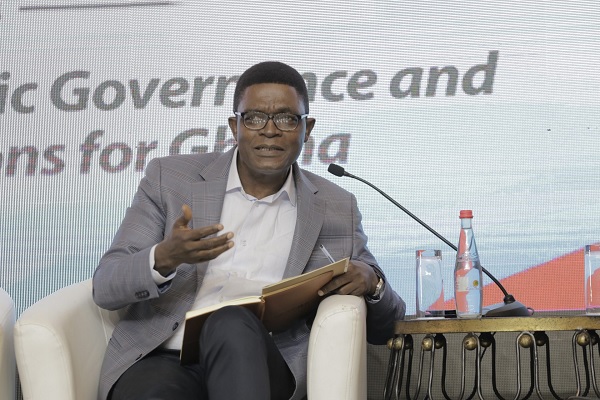
Asset declaration shift shows Ghana is finally taking public accountability seriously – Dr Akwetey
The Executive Director of the Institute for Democratic Governance (IDEG), Dr Emmanuel O. Akwetey, says President John Mahama’s enforcement of asset declaration rules marks a real shift in Ghana’s approach to public accountability after decades of inaction.
Contributing to discussions on Joy FM’s Newsfile programme on Saturday [May 10, 2025], Dr Akwetey described the President’s use of moral pressure, backed by salary sanctions and threats of dismissal, as a practical way to address long-standing non-compliance among public officials.
“For 32 years in the 4th Republic, we’ve heard about asset declaration, but nothing happened,” Dr Akwetey said. “What President Mahama has done, which needs to be recognised, is that the era of impunity is over. You have to declare, and there is a timeline. He set the example, it was the first time we saw a president signing and publicly submitting his forms.”
Although the Constitution allows a six-month window for asset declaration after assuming office, President Mahama introduced a March 31 deadline for all appointees. Dr Akwetey said the move has created a shift in behaviour among officials, even if it has sparked debate about whether the President is going beyond the letter of the law.
“Even if people haven’t breached the six-month legal window, they are now facing real consequences like loss of salary and the threat of dismissal. This is new,” he observed.
Dr Akwetey recalled that under past administrations, including that of former President John Kufuor, attempts to enforce asset declaration laws were hindered by social and cultural concerns. Some public officials feared that openly declaring their assets would make them vulnerable to demands or threats from extended family members.
“They were afraid that, in an extended family system where nephews, nieces and others are involved in inheritance, declaring assets could put their lives at risk. That was the fear at the time,” he noted.
He said that while some critics believe the President may be acting outside the law, the real issue is whether this approach will lead to a lasting culture of accountability.
“Moral persuasion is important, but it turns out it’s not enough. The next stage is to see how many comply by the deadline and what sanctions follow. Could this become the culture we haven’t had in 32 years? That’s the real test,” he said.
Dr Akwetey described the President’s method as firm but practical, given the complications that would arise from dismissing a large number of appointees at once.
“If you sacked all of them, half of them, it would take time to bring in new ministers. You’d have to go through vetting processes again. I think the way he’s started is subtle and gaining results,” he said.
